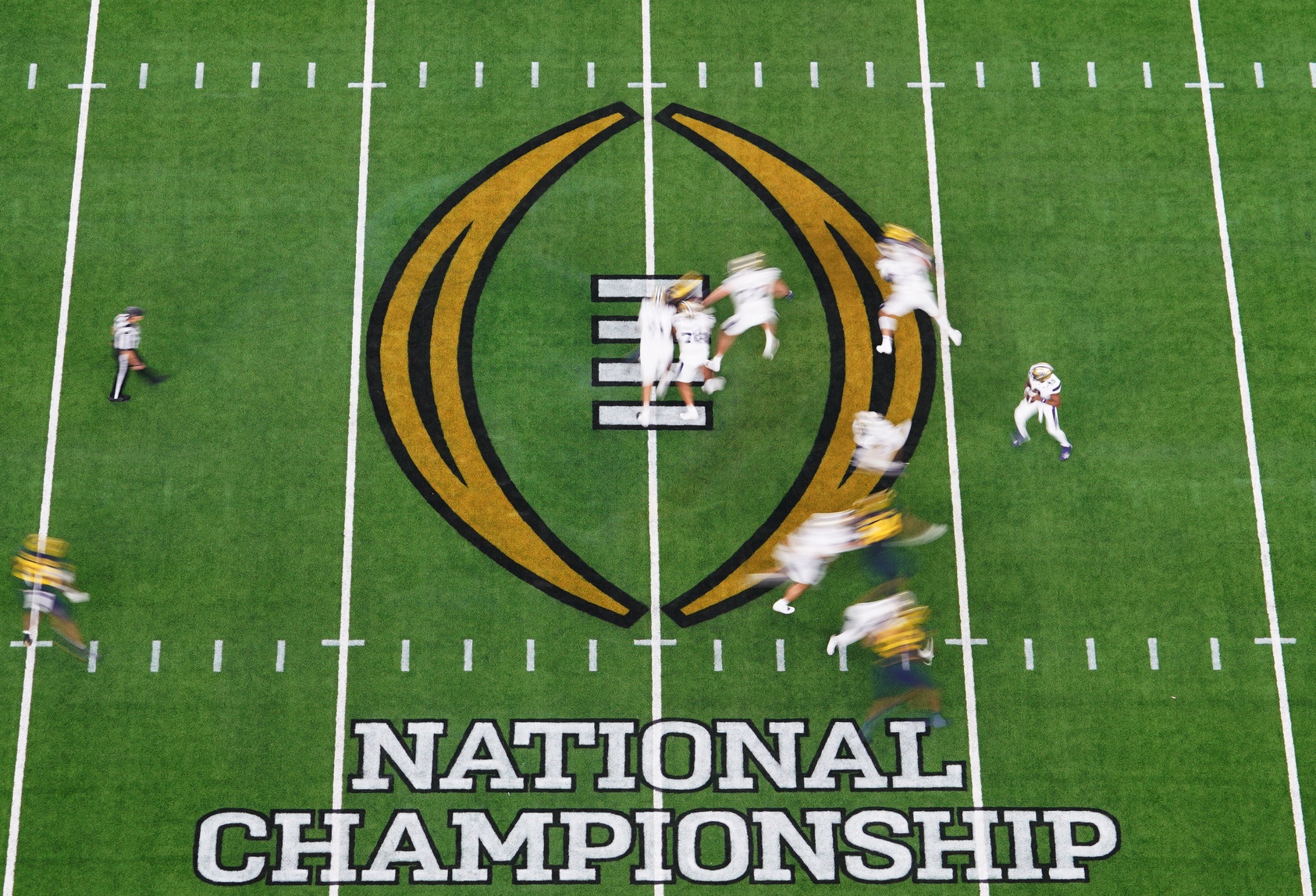With the dust still settling on the College Football Playoff modifying the qualifying format for the expanded 12-team tournament that begins next season, talk is already shifting toward making that field even bigger. While meeting in Dallas this week, leaders of the CFP discussed the potential for a 14- and even 16-team playoff as soon as 2026, according to multiple reports.
The impact of growing from four to 12 teams won’t even be fully realized until next winter, and further expansion will surely lead to more ripple effects. Here’s what we know and what’s at stake:
First-Round Revenue
In December, the top four seeds will receive byes, while seeds 5–8 will host home playoff games against seeds 9–12. The CFP will retain all ticket revenue from those matchups and distribute it across conferences, the organization confirmed to Front Office Sports. So a 16-team playoff would simply mean more ticket revenue to share, as opposed to four more schools cashing in on a home playoff game. Details are still being finalized on what will happen to other revenue from things like concessions and parking.
Which Bowls Benefit?
In December, after the four first-round games on campuses, the quarterfinals and semifinals will be hosted by the traditional New Year’s Six bowls. A 16-team playoff could make even more schools unavailable for non-CFP matchups, but Nick Carparelli, the executive director of Bowl Season, is still optimistic about the future. “We’re very hopeful that after they experiment with the campus games this year, that they’ll realize that the bowl game experience is better for everyone involved,” he tells FOS. “College athletics—regardless of the sport—has always embraced the neutral site concept for postseason competition. And we think college football should maintain that.” Carparelli has one major reason in particular: “If there’s a discrepancy in the seeding of the playoff and a quality team has to go on the road, they may not think it’s such a good idea as they do now.”
Divvying Up TV Pie
FOS media reporter Michael McCarthy cites the law of unintended consequences in predicting the ensuing fallout: “My concern is how the expanded playoff will devalue the media rights—and overall value—of non-CFP bowl games. Once ESPN and other media giants divide up the only bowls that will matter, who’s going to want to televise second- and third-tier games? Even Barstool Sports might be backing out of college sporting events. On the business side, who’s going to sponsor these meaningless exhibitions? Chico’s Bail Bonds? So, good luck to these businesses in the future. Unless they come up with a gimmick like the Pop-Tarts Bowl, they’re going to need a new business plan.”
But Fox Sports college football announcer Tim Brando tells McCarthy more playoff expansion is “tremendous for the overall growth” of the sport, in particular creating more meaningful matchups in November.
Athlete Representation
Amanda Christovich, college sports reporter at FOS, says, “The talk of yet another College Football Playoff expansion illustrates the glaring lack of athlete representation in the sport. In the pros, any game expansion would be negotiated with a players’ union—just look at the back-and-forth between the NFL and the NFLPA over expanding the regular season to 17 games over 16. Especially in a sport like football, more games means more hours and more opportunity for injury. While player well-being was discussed as part of the 12-team expansion, it wasn’t the main issue. As always, the main issue was revenue generation—and that trend appears to be continuing as administrators consider future CFP models.”
